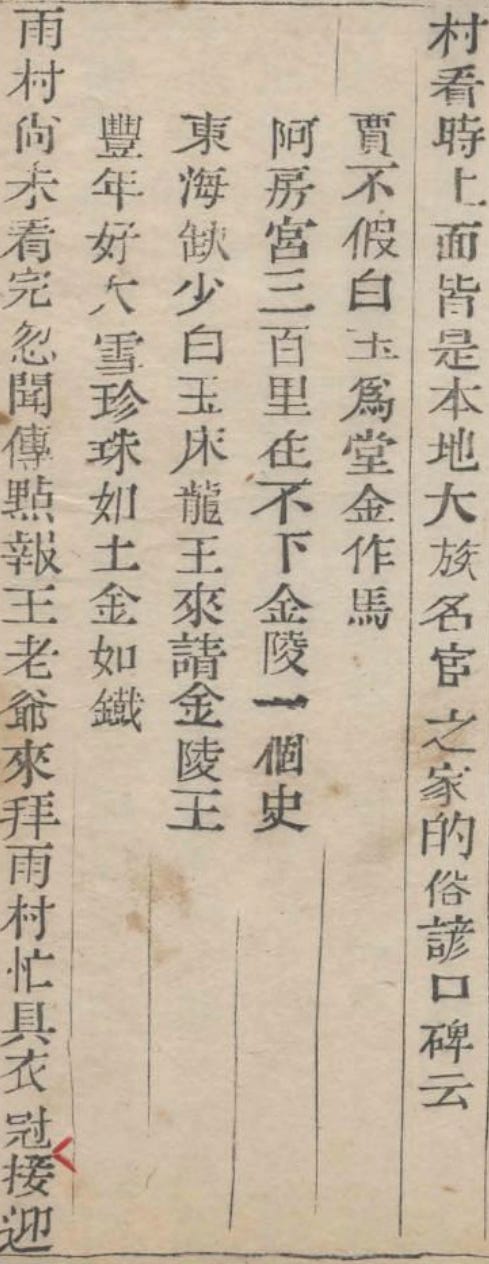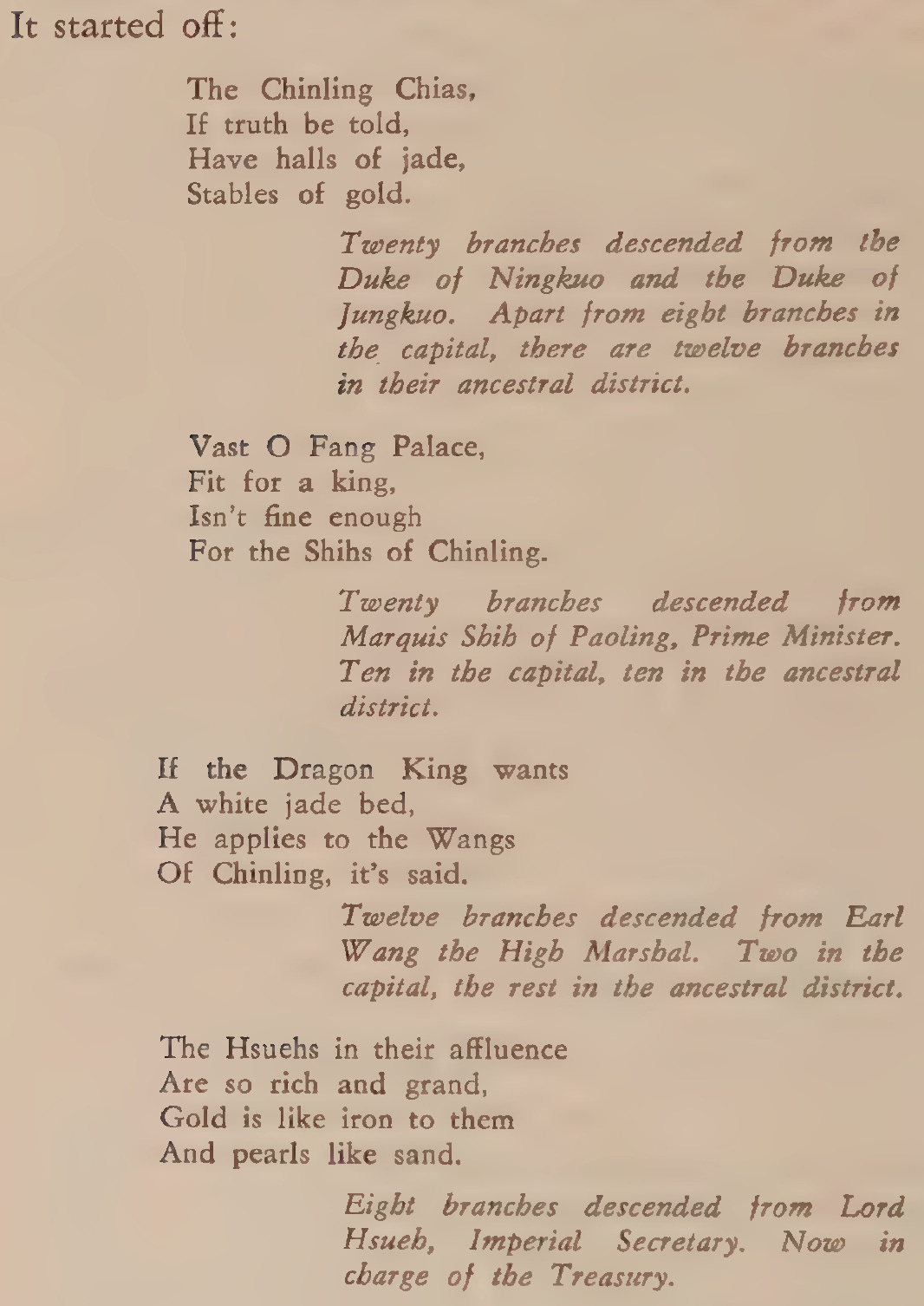Trivial Information
As part of yesterday’s post about the official corruption of the Qing dynasty, we saw this poem:
賈不假,白玉為堂金作馬。
阿房宮,三百里,住不下金陵一個史。
東海缺少白玉床,龍王來請金陵王。
豐年好大雪,珍珠如土金如鐵。
The Jias: their wealth is no pretense, with white jade halls and golden horses.
The Shis: their mansions are 300 li, outshining the Epang Palace of Emperor Qin.
The Wangs: when the dragons lack jade beds in the East Sea, the Dragon King begs the Wangs of Jinling for help.
The Xues: their prosperous snow falls all year round; to them pearls are like dirt and gold like scrap iron.
Now, it’s not clear that there was actually something called the Official Protection Register for officials in the Ming or Qing dynasties, nor is it clear that these short poems are actually the way such information would be passed along if they did actually exist.
It’s also interesting to note that the original printed version of Dream of the Red Chamber marks this poem off like the other poems in the book, despite the fact that it’s clearly not a standard poem:
Of course, the important thing here isn’t the form of the poem, whether it’s standard or not, whether anything “rhymes” in the classical Chinese sense, or any of that. The important point is the point behind all of this.
The point is obvious, of course. Certain families — in this case, the Jia, Shi, Wang, and Xue families — had different legal privileges than other families. It’s blatant official corruption, which is precisely why Cao Xueqin wrote it this way.
Now, I bring all of this up to make a comment on the Gladys Yang and Yang Hsien-Yi translation, A Dream of Red Mansions. The Yangs decided to add in commentary paragraphs that simply don’t exist in the original book.
I thought the best way to address this is to simply show you what they say. Here it is:
Honestly, I’m not sure what to say about this commentary. I’ve got no idea where it comes from. It’s certainly not in the original text, and it’s really not clear to me that it’s “accurate” or not. Most of this isn’t even alluded to anywhere in the book — at least, not from what I can tell.
I guess it’s possible that this might be some commentary from somebody who knew these families in Jinling (Nanjing) in the 18th century. I doubt it, though. It would shock me if Cao Xueqin actually wrote about real corruption using real family names given the threat of political censorship under which he was operating.
And so what can we make of the Yang commentary?
The worst part of this, though, is that it’s mostly pointless. It doesn’t matter how many branches of the Wang family are in the capital and how many are in the countryside, for example. It’s got no bearing on the interpretation of the book, and really means nothing about what Cao Xueqin’s point about corruption really is.
That’s one of the frustrating things about commentary around Dream of the Red Chamber, by the way. There seem to be a lot of scholars who like to go off on tangents here and there without stopping and thinking about whether things really matter in the bigger context of the book.
I’ll let you know when I run into more examples of this. This particular one was unusual, however, in that the Yangs wrote it into the text itself.




